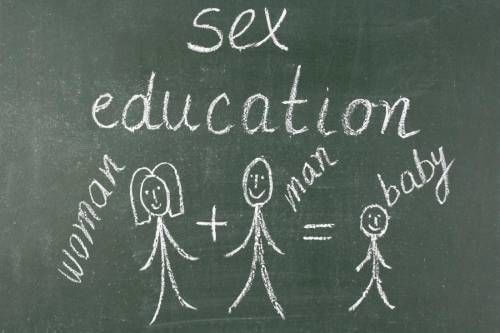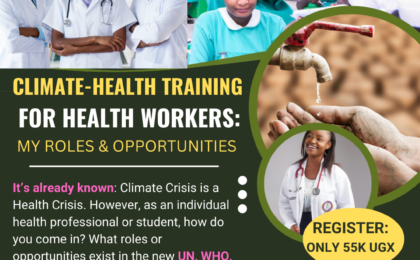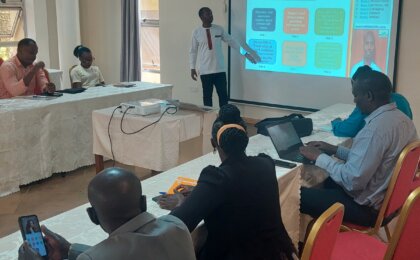History & Controversies of Sex Education in Uganda: When did sex talk with ‘teens’ begin?
Sex education in Uganda
By definition, sexuality or sex education is the instruction of issues relating to human sexuality, including emotional relations and responsibilities, human sexual anatomy, sexual activity, sexual reproduction, age of consent, reproductive health, reproductive rights, safe sex, birth control and sexual abstinence. Sex education that covers all of these aspects is known as comprehensive sex education (De La Mare, 2011).
The Uganda’s Ministry of Education and Sports (2018) defines sexuality education as follows:
‘A lifelong process of acquiring information and forming attitudes, beliefs, and values about vital issues such as sexual development, reproductive health, interpersonal relationships, affection, intimacy, body image, and gender roles. It addresses the socio-cultural, biological, psychological, and spiritual dimensions of sexuality by providing information; exploring feelings, values, and attitudes; and developing communication skills, decision-making, and critical-thinking skills in accordance with the laws and policies of Uganda’ (MoES, 2018, xii)

In this article, I will briefly look at the history of sex education in Uganda and elsewhere, the relevance of sex education to reproductive health and rights, and touch on the controversies around sex education here in Uganda. I would love to note that the topic of sexual education is broad and this article does not exhaust it. In addition, while, technically, sexual education, sex education, and sexuality education do carry different meanings, they shall be used interchangeably in this article to portray the same meaning.
READ THIS TOO: Miklah launches a sexuality education platform, Lhealth
In the articles that shall follow, we will explore Uganda’s 2018 national sexuality education framework, reproductive health challenges facing Uganda, and a way forward.
Brief history of Sex Education in America
Globally, informal sex education has been in discussion (non-public) since 18th Century. This was, however, not formal nor was it public. As cited by Huber (2009), Pearsall (2001) noted that little is known about sex education prior to 20th Century (that is, before 1900). Sex education, according to tradition, was a duty of parents and family in homes and was more about morality and social purity.
According to Brown (2002), cites Huber (2009), “prior to the 19th Century, Christian theology often was integrated into subject matter, so morality and the development of character were prominent in textbooks.”
In late days of 19th Century, open discussions about sex education were open in United States; to be specific, around 1890s (Advocates for Youth, 2018). Again, homeschooling was still common, school-based sex education was not organized yet, and morality still led the talk.
However, some historical events triggered the status of 19th Century sex education and a lot changed (Huber, 2009). In 1892, the National Education Association-NEA promoted sexuality education as a necessary part of a national education curriculum (Advocates for Youth, 2018). At the turn of 20th Century, government promoted community-based sexuality education that centered around hygiene (Huber, 2009). Over the years, the discussions about sex education have gone on and on, up to today.
Brief history of Sex Education in Britain
In Britain, the history of sex education shares a lot with that of US. According to Independent (a British online newspaper established in 1986 as an independent national morning newspaper published in London), sex education was present as early as 19th Century. In 1870s, there were social purity movements and, in 1890, more content about reproduction with allegory of ‘birds and bees’ were added. By 1910, episodes of Venereal Disease infections forced the Royal Commission to rethink sex education, and so the National Council for prevention of VDs (Venereal Diseases) organized talks for teachers, youths, and other speakers.
By 1940s, sex education was even in schools but on a Laissez-faire basis; a school would choose to teach or not teach sex education (Independent-UK, 2018). Iyer and Aggleton (2015) reflect this sex history well when they discuss the journals and councils that were responsible for sex education in early 20th Century in Britain.
According to these authors, British Social Hygiene Council took care of sex education and venereal disease fight through its ‘Health and Empire’ journal (1921-1925). Later, the council’s duty was handed over to Central Council for Health Education, which later became responsible for the magazine (this time calling it ‘Health Education Journal’) and ultimately introducing many changes in content and focus of sex education (1926-1942). From then, sex education went on and the discussions about sex education have not ceased at all. And yet, surprisingly, there is still no consensus regarding how to handle it! In the researchers’ words:
‘The most striking finding is that after more than 70 years of debate, there is little consensus concerning motivations for and the content of education about sex and relationships’ (Iyer and Aggleton, 2015).
Brief history of Sex Education in Uganda
Sex education in Uganda has taken the same trend as in America and Britain. According to the recent sexuality education framework, sex education was there even before 20th Century. According to the Ministry of Education and Sports-MoES (2018), sexual education was usually a duty of parents and families and, like anywhere else, the church or religious beliefs influenced it, focusing it to morality and responsible living.
However, some historical events (for example, venereal disease and HIV infection) forcefully changed the discussion and consciousness about sexuality education.
In 1980s, the government stepped in and introduced School Health Education Program (SHEP), Health Education Network-HEN, Safeguard the Youth from AIDS-SYFA, and the 2003 Presidential Initiative on AIDS Strategy for Communication to Youth-PIASCY. In the same context, MoES released the 2007 Guidance and Counselling Curriculum that still aimed at providing life lessons to help youths make healthy and life choices, and National Curriculum Development Centre-NCDC recently developed Life Education Learning Area Syllabus for lower secondary schools to impart social, personal and health skills (Ministry of Education and Sports, 2018).
EXPLORE THIS TOO: Lhealth, the platform for online comprehensive sex education in Uganda!
As reflected by the above trend of sex education in Uganda, there has not been a time for sexuality education per se. Often, sex education in Uganda has always popped up as a part of a broader education program. This makes the 2018 National Sexuality Education Framework the first one of its kind in Uganda’s history of sex education.
Sex education though controversial is necessary!
From the above 3 categories (United States, Britain, and Uganda) that I have briefly covered, there is a common observation or conclusion that scholars, here in Uganda, there in America, Britain, and elsewhere agree on; the link between sex education and health and socioeconomic progress is real, and is acknowledged by all people and societies. Sadly, scholars, people, and societies disagree on the content, nature, focus, goals, or even who should teach what to which audience.
Huber summarizes this absurdity in these words:
Today, most…. acknowledge that schools must provide some sort of sex education to its teens, but the debate over the content of this education still rages. Since the turn of the 20th century, there has been a tense disagreement over the place and content of sex education. Who should teach the information to youth? What is age appropriate? When should discussions begin? How should the material be presented? Should information be shared from a moral, amoral, religious or medical standpoint? Should the education be directive or non-directive? What is the goal of the education? Educators, psychologists, physicians, clergy, parents, and policy-makers have wrestled with these questions for decades (Huber, 2009, Page 12).
Controversies around sex education in Uganda!
Globally, the controversy or disagreement about sex education is between Abstinence-only Sex Education-ASE and the Comprehensive Sex Education-CSE approaches and this has resulted into a heated debate over the years (Vescolani, 2009). Besides these two approaches having generally different contents, differences base more on longtime battles between science and religion or faith regarding what is true, right, correct or morally acceptable.
According to Vescolani (2009), basically, comprehensive sex education is the science of preventing pregnancy and diseases. On other hand, abstinence only education is guided by religious and morality underpinnings as idealized by religion or faith. In addition, abstinence only sex education promotes ‘traditional ideas of gender, family, sexual orientation, and morality. Comprehensive sex education, on the other hand, is more of progressive, changing and embracing new ideas about gender, family, sexuality, and morality as times change.
These differences are serious and their implications are many and diverse; they (differences) have toppled governments and built others, built businesses and destroyed others, destroyed and built leaders’ profiles in schools, government, and organizations across the globe. They are not going anywhere anytime soon (Huber, 2009).
In Uganda, the same trend of controversy has existed for some years. According to the Ministry of Education and Sports (2018), besides government-funded sex education programs (as mentioned above; history of sex education), Non-Government Organizations (NGOs) and Private schools have been providing sex education in Uganda. However, there were no clear guidelines on the content or goals of such sex education. Therefore, ‘young people are continuously exposed to uncensored sexually explicit and obscene material which often portray inaccurate information about sex and sexuality. This is done through the internet, social media, and mass media outlets such as newspapers, radio, TV, telecommunications’ (MoES, 2018, xiii).
This lack of clear policy on sex education in Uganda actually resulted in some sex education related sagas (for example, the raid of Green Hill Academy by Ethics Minister Lokodo in 2016). In reaction to these events, Uganda Parliament called for the ban of comprehensive sex education in Uganda (Fallon, 2017). Later, schools and organizations sued government & (especially private ones) demanded for a clear guideline on sex education in Uganda, a demand that resulted into Uganda drafting and releasing the 2018 national sexuality education framework as a guide for sex education in both public and private institutions.
All the above controversy rains on a nation whose reproductive health indicators aren’t yet good. Explore here and here.
In our next article, we will explore Uganda’s 2018 national sexuality education framework. For now, go and sex educate, lol!




